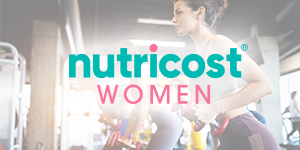5 Questions You’ve Probably Asked About Protein Powder

If you’ve ever overheard a conversation in the gym that sounded more like a chemistry lecture than a discussion on fitness, breathe easy. When it comes to protein powder, there’s a lot to know, but there’s nothing to fear, and you don’t need a PhD to reap the benefits of protein powder. Simply choose the one which best suits your goals and needs, get to work, and let your body do the rest!
But how to choose? Have no fear! This article is here to give you all the information you need to use protein powder with confidence.
Let’s get to it!
How Does Protein Work?
Here’s the gist: Exercising breaks down your muscles, creating micro-tears between the filaments. Relax, this is actually a good thing! In response to the damage, your body dispatches teams of enzymes to stitch them back together. Only unlike those old sweatpants you’ve been hanging on to, your muscles get stronger with every regenerative cycle.
This process—called Muscle Protein Synthesis (MPS)—is how your body builds stronger, leaner muscle, and it is fueled by protein.

Is Protein Powder Right for Me?
Many of us think Protein=Big, Bulky Muscles. Well, not so fast. There’s several reasons you might want to supplement your diet with protein powder, beyond chasing those elusive gains.
Here’s a quick list:
Weight Management
Protein suppresses appetite by reducing your level of the hunger hormone, ghrelin, and it also boosts metabolism.
Bone Health
People who eat more protein experience greater bone mass retention as they age.
Muscle Recovery
Makes sense right? Protein contains all the building blocks that your body uses to repair itself.
No Time
For anyone too busy for bacon and eggs in the morning, a protein shake can be a great way to give your body the juice it needs for the day.
Taste
If you’re not a fan of traditional protein sources, protein powders are an easy way to supplement your diet and prevent protein malnutrition.
How Much Protein Do I Need a Day?
You’ll hear from a lot of places that the Recommended Dietary Allowance (RDA) of protein is 0.8g per kg of body weight.
However, for individuals with high body fat, this equation can lead to a skewed number. Lean weight is a better indicator and can be calculated by simply squaring your height in meters and multiplying that number by 25, which is a generally healthy BMI.
Example:
(1.5m)^2 X 25 = 56.25 kg (lean weight)
56.25kg X 0.8 = 45g (protein RDA)
Now, most people meet their protein RDA with regular meals, but if you’re wanting to build muscle or tone, you’ll likely need more. One study recommends the following ratios for individuals with different levels of activity.
- Minimal — 1.0
- Moderate — 1.3
- Intense — 1.6
This is where a protein shake really comes in handy. It’s a great way to supplement your protein intake without all the calories and fat that would come from eating an extra 16oz ribeye every day.

Which Type of Protein Powder is Right for Me?
Though far from a comprehensive list, here are a few of the most popular protein powders.
Whey
This is the big one. Whey protein digests quickly and is rich in all 9 essential amino acids your body needs to build and maintain muscle. As its name suggests, whey protein is derived from milk.
While shopping whey protein, it is likely that you come across some labled “Whey Isolate” and others labeled “Whey Concentrate.” Isolate is more highly processed and contains more protein, less fat, less carbs, and less lactose than concentrate (often less than 1%). However, isolate also tends to be the more expensive of the two options.
Because of its quick digestion time, whey protein tends to be used as a pre/post-workout supplement.
Casein
Like whey, casein is a protein found in milk, but it digests much more slowly than its counterpart, extending the duration of muscle protein synthesis. In practical terms, this means that casein is good before fasting periods, preventing muscle loss during sleep or long days spent in meetings or running around with kids.
Pea
Pea protein is a dairy free, plant-protein especially popular among vegetarians and vegans. Like most plant proteins, pea protein powder is lacking in several amino acids and is generally somewhat less efficient at stimulating muscle protein synthesis (MPS) than animal based products.
Unlike animal-proteins, pea protein contains fiber and can be a good option for anyone looking to boost their daily intake. 
Soy
Soy is an oddity. Though plant-based, it is a complete protein with all the amino acids the body needs for MPS. In terms of digestion time, it falls somewhere between whey and casein. As such, it is a very versatile protein which can be taken essentially at your own convenience, whether as part of breakfast, after a workout or before bed.
When is the Best Time for Me to Take Protein?
There’s plenty of modern mythology surrounding when is the best time to drink a protein shake. Some say before a workout, others say after. Others can be seen swigging from their shaker bottles between sets. But what’s the truth?
There actually appears to be growing support for the approach of spreading your protein intake evenly across the day. In one study, published in the Journal of Nutrition, people who ate about 30g of protein at each meal experienced 25% greater muscle growth compared to those who delayed and ate most of their protein in a single sitting.
And depending on your protein requirements and hunger, it may be a bit tough to get in all the required protein in just one meal!
So next time you skip a meal, remember that you can’t always make up for the missed protein at dinner. A protein shake is a great way to give your diet the balance it's missing!
3 Easy Ways to Take Your Protein
The Classic
Pour a scoop or two into a shaker bottle with milk or water. Great for a quick hit whenever you need it!
Blend it
Maybe you want to take your protein game up a notch and make a delicious shake or smoothie. Take a banana (or whatever fruit/berries you like!), a handful of ice, and some almond milk and toss it in a blender with a scoop of vanilla protein powder.
Tasty Recipes
Protein powder lends itself to be a great baking ingredient. So feel free to fortify your pancakes, oatmeal, or whatever with an extra punch of muscle-supporting, hunger-curbing protein!
The Bottom Line
Now you know the ins-and-outs of protein, it's time to decide which protein powder you want to supplement with!
Based on your protein requirements, diet preferences, and budget, you'll be sure to find your favorite protein powder!
Remember, don’t be afraid to experiment! It’s all about finding what works best for you and your body.
Sources
https://pubmed.ncbi.nlm.nih.gov/26797090/
https://www.eatingwell.com/article/7912011/whats-the-big-deal-about-sugar-we-have-your-questions-answered/
https://asbmr.onlinelibrary.wiley.com/doi/full/10.1359/jbmr.2000.15.12.2504
https://pubmed.ncbi.nlm.nih.gov/16469977/
https://academic.oup.com/ajcn/article/101/6/1330S/4564493#110064297
https://www.ncbi.nlm.nih.gov/pmc/articles/PMC6723444/
https://www.health.harvard.edu/blog/the-scoop-on-protein-powder-2020030918986
-
Posted in
Performance











